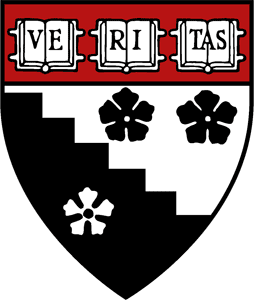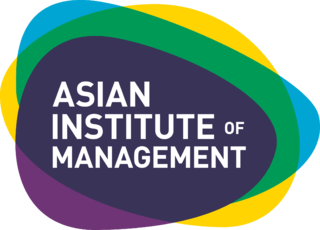The Doctor of Education is a research or professional doctoral degree that focuses on the field of education. It prepares the holder for academic, research, administrative, clinical, or professional positions in educational, civil, private organizations, or public institutions.
Teach For America (TFA) is a nonprofit organization whose stated mission is to "enlist, develop, and mobilize as many as possible of our nation's most promising future leaders to grow and strengthen the movement for educational equity and excellence".

Chicago Public Schools (CPS), officially classified as City of Chicago School District #299 for funding and districting reasons, in Chicago, Illinois, is the fourth-largest school district in the United States, after New York, Los Angeles, and Miami-Dade County.

The Harvard Graduate School of Education (HGSE) is the education school of Harvard University, a private research university in Cambridge, Massachusetts. Founded in 1920, it was the first school to grant the EdD degree and the first Harvard school to award degrees to women. HGSE enrolls more than 800 students in its one-year master of education (Ed.M.) and three-year doctor of education leadership (Ed.L.D.) programs.

The Asian Institute of Management (AIM) is an international management school and research institution. It is one of the few business schools in Asia to be internationally accredited with the Association to Advance Collegiate Schools of Business (AACSB). It was established in partnership with Harvard Business School and uses the Harvard Business School case study teaching methodology. Prof Stephen Fuller of the Harvard Business School was its first president, to be succeeded by another professor from Harvard. It was described by Asiaweek magazine as the best in the Asia-Pacific region in terms of executive education.
Educational leadership is the process of enlisting and guiding the talents and energies of teachers, students, and parents toward achieving common educational aims. This term is often used synonymously with school leadership in the United States and has supplanted educational management in the United Kingdom. Several universities in the United States offer graduate degrees in educational leadership.

The Ivy Council is a non-profit organization of Ivy League student government leaders, student organization leaders, and students at-large. The Ivy Council was established in 1990 by members of the Ivy League student governments in order to facilitate effective communication between the student governments of their respective institutions and to provide a unified voice for the Ivy League student governments. On its 30th anniversary, the organization was restructured and expanded its focus beyond the eight Ivy League universities to better serve its new mission statement.

Urban Prep Academies is a nonprofit organization that operates a network of free open-enrollment public all-male college-preparatory high schools in Chicago. Founded in 2002, and receiving its first charter approval from Chicago Public Schools in 2005, it operates the first all-male public charter high school in the United States. The network opened a second campus in 2009 and a third in August 2010. From 2010–2019, 100% of the seniors in the school's graduating classes were admitted to four-year colleges or universities.

The Association for Supervision and Curriculum Development d/b/a ASCD is a membership-based non-profit organization founded in 1943. It has more than 125,000 members from more than 128 countries, including superintendents, principals, teachers, professors of education, and other educators. The ASCD Community also includes 52 affiliate organizations, self-organized Connected Communities, and ASCD Student Chapters. While ASCD was initially founded with a focus on curriculum and supervision, the association now provides its members with professional development, educational leadership, and capacity building. ASCD is a global community advancing student achievement by supporting the whole child, and seeks to develop programs, products, and services essential to the way educators learn, teach, and lead.
The National Association of Secondary School Principals (NASSP) is a national organization of and voice for middle level and high school principals, assistant principals, and aspiring school leaders from across the United States and more than 45 countries around the world. The association currently serves more than 27,000 members.
The Chicago Annenberg Challenge (CAC) was a Chicago public school reform project from 1995 to 2001 that worked with half of Chicago's public schools and was funded by a $49.2 million, 2-to-1 matching challenge grant over five years from the Annenberg Foundation. The grant was contingent on being matched by $49.2 million in private donations and $49.2 million in public money. The Chicago Annenberg Challenge was one of 18 locally designed Annenberg Challenge project sites that received $387 million over five years as part of Walter Annenberg's gift of $500 million over five years to support public school reform. The Chicago Annenberg Challenge helped create a successor organization, the Chicago Public Education Fund (CPEF), committing $2 million in June 1998 as the first donor to Chicago's first community foundation for education.

The California Association of Student Councils (CASC) is a non-profit, student-led youth leadership and advocacy organization. Founded in 1947 by the California Department of Education and now-Association of California School Administrators, CASC has provided a multitude of conferences to students, advisors, and professionals in both California and around the world.
The National Equity Project, formerly known as the Bay Area Coalition for Equitable Schools or BayCES, is an education reform organization that specializes in leadership development and changing culture and conditions in order to further equity objectives. It is a coaching and consulting organization based in Oakland, California; its name change in July 2010. The name was changed as the organization had expanded into new regions and began offering new services. In addition to schools, they also work with many districts and nonprofits on educational equity initiatives.
Teach For All is a global network of 61 independent, locally led and funded partner organizations whose stated shared mission is to "expand educational opportunity around the world by increasing and accelerating the impact of social enterprises that are cultivating the leadership necessary for change." Each partner aims to recruit and develop diverse graduates and professionals to exert leadership through two-year commitments to teach in their nations' high-need classrooms and lifelong commitments to expand opportunity for children. The organization was founded in 2007 by Wendy Kopp and Brett Wigdortz. Teach For All works to accelerate partners' progress and increase their impact by capturing and sharing knowledge, facilitating network connections, provisioning global resources, and fostering leadership development of staff, teachers, and alumni.
Instructional leadership is generally defined as the management of curriculum and instruction by a school principal. This term appeared as a result of research associated with the effective school movement of the 1980s, which revealed that the key to running successful schools lies in the principals' role. However, the concept of instructional leadership is recently stretched out to include more distributed models which emphasize distributed and shared empowerment among school staff, for example distributed leadership, shared leadership, and transformational leadership.

The University of Colorado Denver School of Public Affairs is located in the Lower Downtown ("LoDo") district of Denver, Colorado. The School is fully accredited by the Network of Schools of Public Policy, Affairs, and Administration (NASPAA). The School enrolls approximately many students in graduate programs in public administration, public affairs, and criminal justice, and undergraduate programs in criminal justice and public service.

Jerome T. (Jerry) Murphy is the Harold Howe II Professor of Education Emeritus and Dean Emeritus at the Harvard Graduate School of Education. Jerry Murphy's current teaching and research focuses on the inner life of education leaders and how to find meaning and vitality in the midst of stress and strain.
Elizabeth Howe Bradley is the eleventh President of Vassar College, a role she assumed on July 1, 2017. Bradley also holds a joint appointment as Professor of Political Science and Professor of Science, Technology, and Society.
Data-driven instruction is an educational approach that relies on information to inform teaching and learning. The idea refers to a method teachers use to improve instruction by looking at the information they have about their students. It takes place within the classroom, compared to data-driven decision making. Data-driven instruction works on two levels. One, it provides teachers the ability to be more responsive to students’ needs, and two, it allows students to be in charge of their own learning. Data-driven instruction can be understood through examination of its history, how it is used in the classroom, its attributes, and examples from teachers using this process.
Paul Reville is a U.S. politician, teacher, school principal, and educational researcher who was the Massachusetts Secretary of Education from 2008 to 2013 under Governor Deval Patrick. He currently serves as the Francis Keppel Professor of Practice of Educational Policy and Administration at the Harvard Graduate School of Education.









